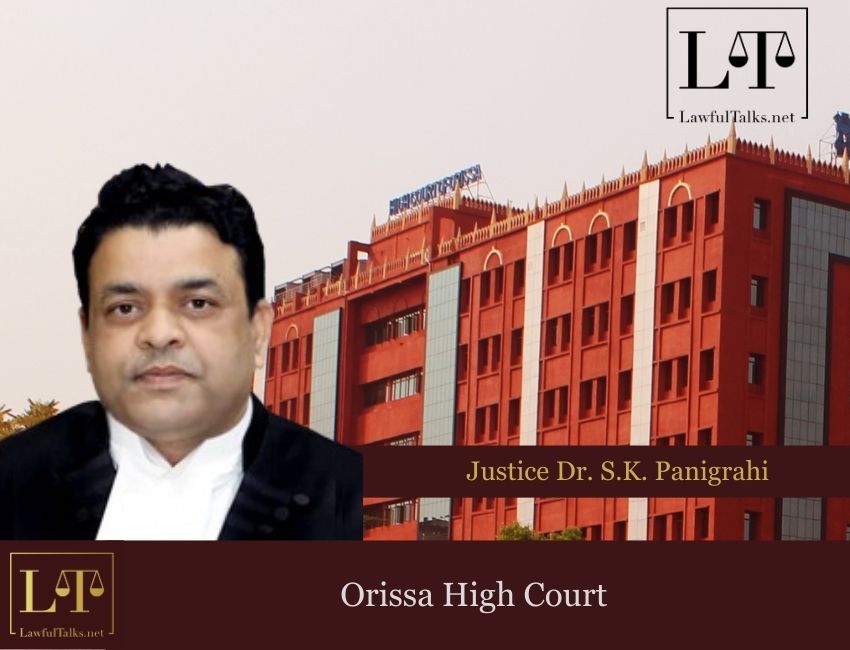Allahabad HC Sets Aside Afzal Ansari's Conviction, Allows Him to Continue as MP

In the case of Manoj Rohidas v. Union of India & Ors., the Orissa High Court, presided over by Justice Dr. S.K. Panigrahi, delivered a judgment emphasizing the indispensable role of integrity and transparency in public service employment. The case arose from the cancellation of the petitioner’s candidature for the position of Junior Overman (Trainee) at NLC India Limited (NLCIL), a decision based on his failure to disclose pending FIRs during the recruitment process.

The petitioner, a Diploma holder in Mining Engineering and classified as a Project Affected Person (PAP) under NLCIL’s scheme, had applied for the position of Junior Overman (Trainee) in response to Advertisement No. 12/2022 dated 13-01-2023. He successfully cleared the written examination and the document verification stage and was awaiting a medical examination. However, his candidature was subsequently canceled through a letter dated 16-04-2024. The grounds for cancellation lay in the petitioner’s answer of “No” to a recruitment form question that required candidates to disclose any instances of conviction, detention, prosecution, arrest, or binding down by any court. It was later discovered that three FIRs were pending against him at the time of his application.
The petitioner contended that the allegations in the FIRs were fabricated and that he had disclosed all relevant information during the recruitment process. He argued that the application form’s question was vague, referring only to formal proceedings by a court, whereas he had not been convicted or detained by any judicial authority. Furthermore, he maintained that the decision to cancel his candidature was harsh, disproportionate, and procedurally flawed, as he had not been given an opportunity to explain his circumstances.
The Court, however, found no merit in these arguments. It emphasized that public-sector recruitment mandates a high degree of transparency and trustworthiness, particularly for positions requiring public accountability. The Court noted that the explicit question in the recruitment form about criminal antecedents left no room for ambiguity. The petitioner’s failure to disclose three pending FIRs constituted a deliberate suppression of material information.
Relying on the precedent set in Avtar Singh v. Union of India (2016) 8 SCC 471, the Court reiterated that candidates are obligated to provide truthful information regarding any criminal convictions, arrests, or pending cases. Suppression or misrepresentation in this regard justifies the employer’s decision to cancel a candidature or terminate services. The Court further distinguished the petitioner’s case from instances where candidates were granted the benefit of the doubt due to misunderstandings about legal terminology, as in State of Haryana v. Dinesh Kumar (2008) 3 SCC 222. Unlike such cases, the petitioner’s omissions were deliberate and material to the recruitment process.
The Court also underscored the limited role of writ courts in interfering with the discretionary powers of appointing authorities. It acknowledged that while such discretion must be exercised judiciously, proportionately, and in alignment with public service objectives, the appointing authority retains the prerogative to assess a candidate’s suitability based on the nature of the role and the candidate’s antecedents.
In conclusion, the Court upheld the decision of NLCIL to cancel the petitioner’s candidature, holding that it was in accordance with established principles of fairness and public service integrity.
Case Details: Manoj Rohidas v. Union of India & Ors. [W.P.(C) No. 14568 of 2024, decided on 17-12-2024]
Advocates For the Petitioner: S.K. Purohit, Advocate.
Advocates For the Respondents: P.K. Parhi (DSGI) and A. Khandelwal, Advocate.





























































































































































































































































































































































































































































































































































































































































































































































